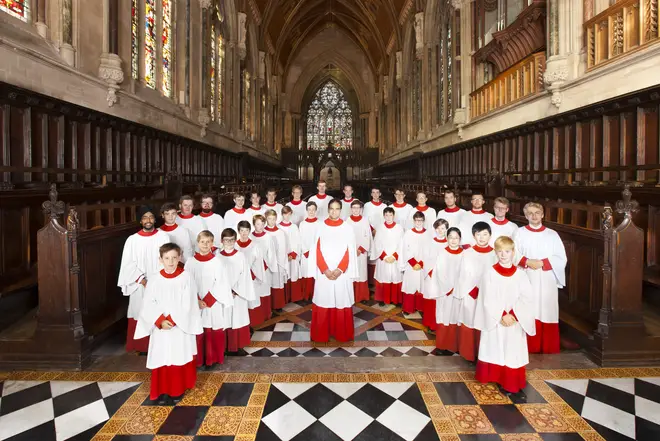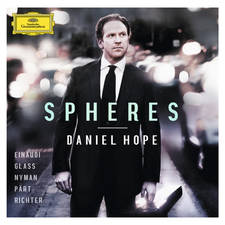What is it like to sing the top C in Allegri’s Miserere? We asked a boy treble.
26 February 2020, 17:38 | Updated: 26 February 2020, 17:57
As we mark Lent, talented young Choir of St John’s Cambridge chorister, Freddie Harrison, tells us what it’s *actually* like singing that Miserere high ‘C’.
Today is Ash Wednesday, marking the beginning of Lent, and six-and-a-half weeks before Easter, in the Christian calendar.
The forty-day period is one of penitence and fasting, and other sacred traditions – including musical ones.
The Choir of St John’s Cambridge’s Ash Wednesday Choral Evensong is an annual highlight, and regularly includes Allegri’s Miserere mei, Deus – the enduring and beautiful work famous for apparently being transcribed by Mozart after he heard it just once at the Vatican’s Sistine Chapel.
And with the Miserere comes those famous soaring top ‘C’s, performed year in and year out by talented and brave boy trebles, hand-picked for their smooth, pitch-perfect, and – crucially – incredibly high vocals.
But what’s it like to sing the solo line in Allegri’s Miserere? And how do you prepare for such an exposed-but-thrilling performance moment – heightened surely when faced with an audience, recording equipment or television cameras? We asked Choir of St John’s boy treble, Freddie Harrison, who has recently recorded the solo with his choir.
Read more: Choirboy inhales a big gulp of helium in Allegri’s Miserere – and hits the high C >

How do you prepare to sing the high ‘C’ in Allegri’s Miserere?
“In the few weeks leading up to the performance our conductor, Mr Nethsingha, started introducing the piece into practice – probably two or three months before we actually sang it,” Harrison tells Classic FM.
“We did bits and bobs with everyone and then after the main practice, he’d keep a few of us behind to practice the top ‘C’s and the solo parts, together with the Latin words.”
The main thing, then, for training for that Allegri top ‘C’, is really getting to know the music through rehearsal, heaps of personal practice – and as much experience as you can get. Freddie is lucky to have had the experience of performing the solo line in Miserere twice before he was picked for the Choir of St John’s performance.
The Choir’s director, Andrew Nethsingha, had kept a close eye on the trebles emerging with the most suitable voices and whittled the number practicing the solo down over time.
He ended up training two soloists to reduce pressure for this recording of the Miserere mei, but Freddie’s fellow soloist fell ill before the morning of Ash Wednesday, and so the task was left to Freddie in no uncertain terms.
Freddie, who actually had a sore throat in the week before this Miserere performance – mended in time by plenty of steam, luckily – describes hearing the news as “a surprise” but luckily had had experience of singing it before.
And it was something that, in Nethsingha’s words, Freddie handled with “extraordinary composure and artistry” in spite of the half-a-million people listening.
How does it feel to sing the top ‘C’ in Allegri’s Miserere?
“To an extent it’s slightly worrying whether you’ll hit the right note, because sometimes in practices your voice might be a bit tired and it hasn’t been how you like it,” Freddie – now 14, but 13 at the time of the recording – explains.
“But by the end, as long as your voice is in good shape, it should come out as you expect.”
He adds: “It feels a tiny bit surreal because of all the recording equipment, and you don’t really realise how many people you’re singing to in the end.”
The piece itself is a nine-voice setting of Psalm 51: ‘Miserere mei, Deus, secundum magnam misercordiuam tuam’ (‘Have mercy upon me, O God, after Thy great goodness’). The voices weave through the repeated verses, with the top solo part soaring above the rest in stunning melodies guaranteed to goosepimple even the most steadfast of skins.

Freddie’s voice is still a treble, but that will change. His high ‘C’s captured last year will soon be just a moment caught in time – which is a profound thought.
Director Andrew Nethsingha explains in the recording’s booklet notes that boy treble voices inevitably don’t stay the same forever: “Naturally I hope that our present Choristers will go on to have wonderful adult voices, like Sir Simon Keenlyside who sang treble in the very first Ash Wednesday broadcast here.
“But – imagine going to a museum to look at a precious Ming vase, in the certain knowledge that by the time you next visit the museum the vase will have been dropped on the ground. It’s important to take a photograph of the vase that can be kept forever.”
Freddie’s dad, Tom, describes hearing the Miserere solo performed by his son as “nerve-wracking as a parent” and expresses his pride that Freddie did so well.
The Choir of St John’s College, Cambridge’s live broadcast recording of music for Ash Wednesday is out now on Signum Classics.





















